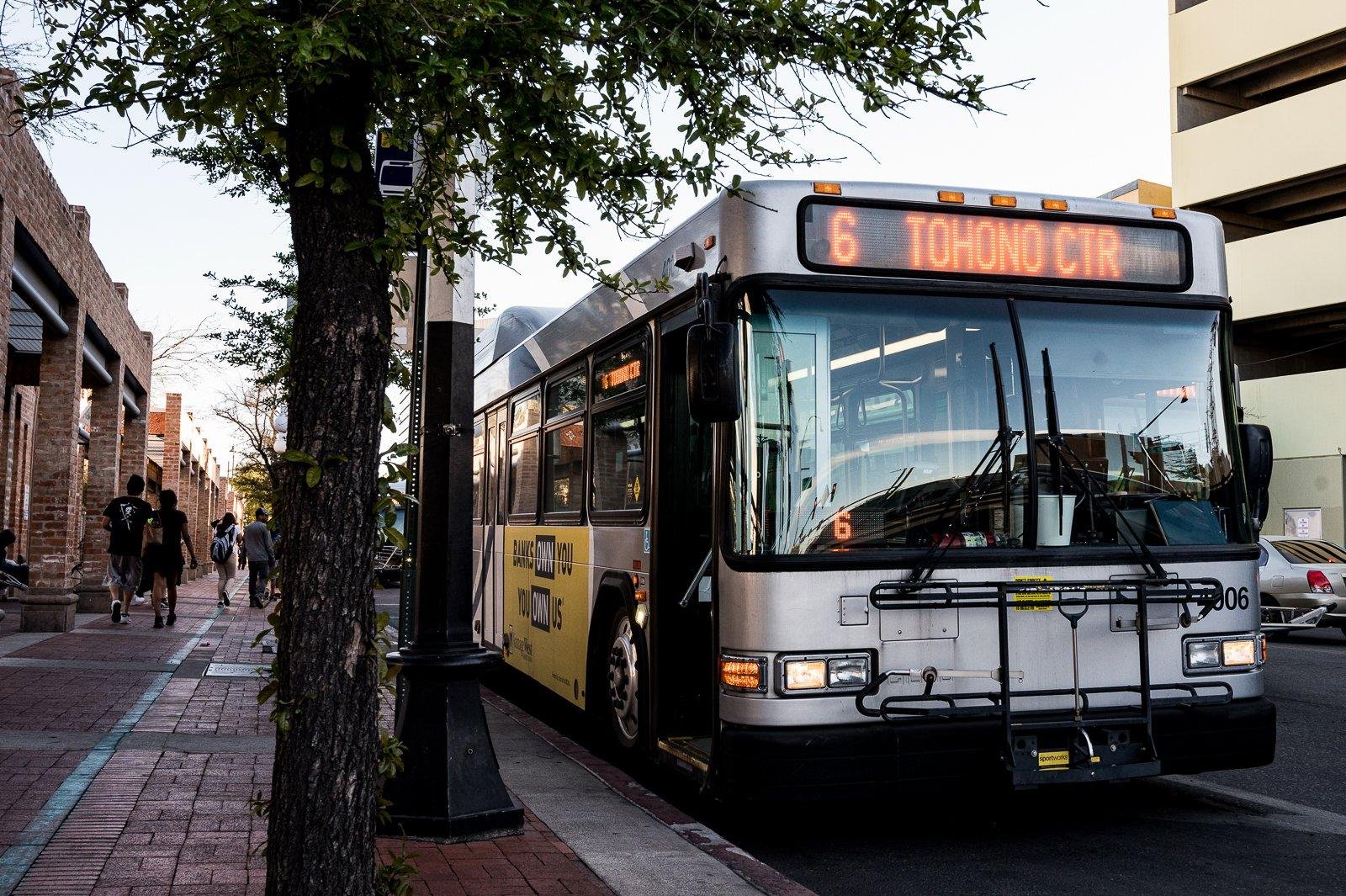Business
Tucson City Council Reassesses Free Sun Tran Bus Fare Policy

The Tucson City Council convened on Tuesday to deliberate the potential reimplementation of fares for public transit services amid a looming $68 million budget shortfall. Since March 2020, public transportation in the city has been free, a policy set to continue until at least this summer.
Before any fare adjustments can be made—covering services like Sun Tran buses, the Sun Link streetcar, and the Sun Van disability transport—federal law mandates a fare equity analysis. This analysis will assess how fare changes might impact low-income and minority riders.
A majority of the council, four members in favor, voted to initiate the analysis. Councilmembers Kevin Dahl and Lane Santa Cruz opposed it, while Richard Fimbres was absent. The voting members, including Mayor Regina Romero, regarded the analysis as an opportunity to evaluate transit charging feasibility.
“I deeply believe we should maintain the free system. However, the potential for a $68 million budget deficit necessitates this analysis,” stated Mayor Romero, attributing the shortfall to former Governor Doug Ducey’s 2021 flat state income tax policy. “It’s crucial to understand the impact on our communities.”
The city plans to review five fare options:
- Option 1: Reinstate 2018 fares at $1.75 per ride.
- Option 2: Charge fares only for the streetcar and express bus.
- Option 3: Implement a simplified fare structure: $0.50 for Sun Tran and Sun Link rides, and $1 for Sun Van rides.
- Option 4: Establish a cap on riders’ expenses for a defined period, ensuring they pay no more than a specified amount regardless of the number of trips.
- Option 5: Create a free, low-income pass for qualifying individuals.
According to a 2022 city survey, over 75% of public transit riders reported an annual household income of less than $35,000. Recent statistics show that bus ridership rose by 23% in February 2023 compared to February 2020, with Sun Van ridership up by 5% and peak ridership on the Sun Link streetcar increasing by nearly 96%.
“Fare box recovery,” namely the revenue collected from ridership, has historically not covered the system’s operational costs, a trend seen in many municipal transit systems nationwide. In 2019, fare collections reached nearly $11 million, yet operating costs topped $58 million, resulting in a $2.7 million funding gap. The city remedied this shortfall through budget allocations, grants, and advertising.
In Fiscal Year 2023, Tucson committed over $60 million from its general fund to transit services, surpassing the per-capita expenditures of Phoenix, which utilizes a sales tax for its public transit funding.
Councilmember Santa Cruz encouraged exploring alternative funding methods, like increasing hotel surcharges and parking fees, instead of reinstating fares. Both she and Dahl expressed concerns that discussing fare reinstatement contradicted the city’s commitment to maintaining a fare-free system through Fiscal Year 2026.
Public opinion remains divided. Citizens at the meeting voiced concerns about reinstating fares, emphasizing the importance of accessible public transportation. “No one should face additional financial burdens because of bus fares,” said resident Violet Winters, advocating for a more equitable transit approach. She highlighted bus travel as an environmentally friendly option during critical climate challenges.
Contrastingly, Sun Tran driver Joshua Kellogg advocated for fare reinstatement, citing an increase in hostility and disruptive behavior among passengers affecting the safety and experience of bus rides. “Offering free fares during COVID helped, but now it has a negative impact on the service,” he remarked.
Transportation and Mobility Director Sam Credio mentioned that the fare equity analysis would take approximately 60 days to complete, paving the way for future council discussions on public transit funding and fare structures.


















